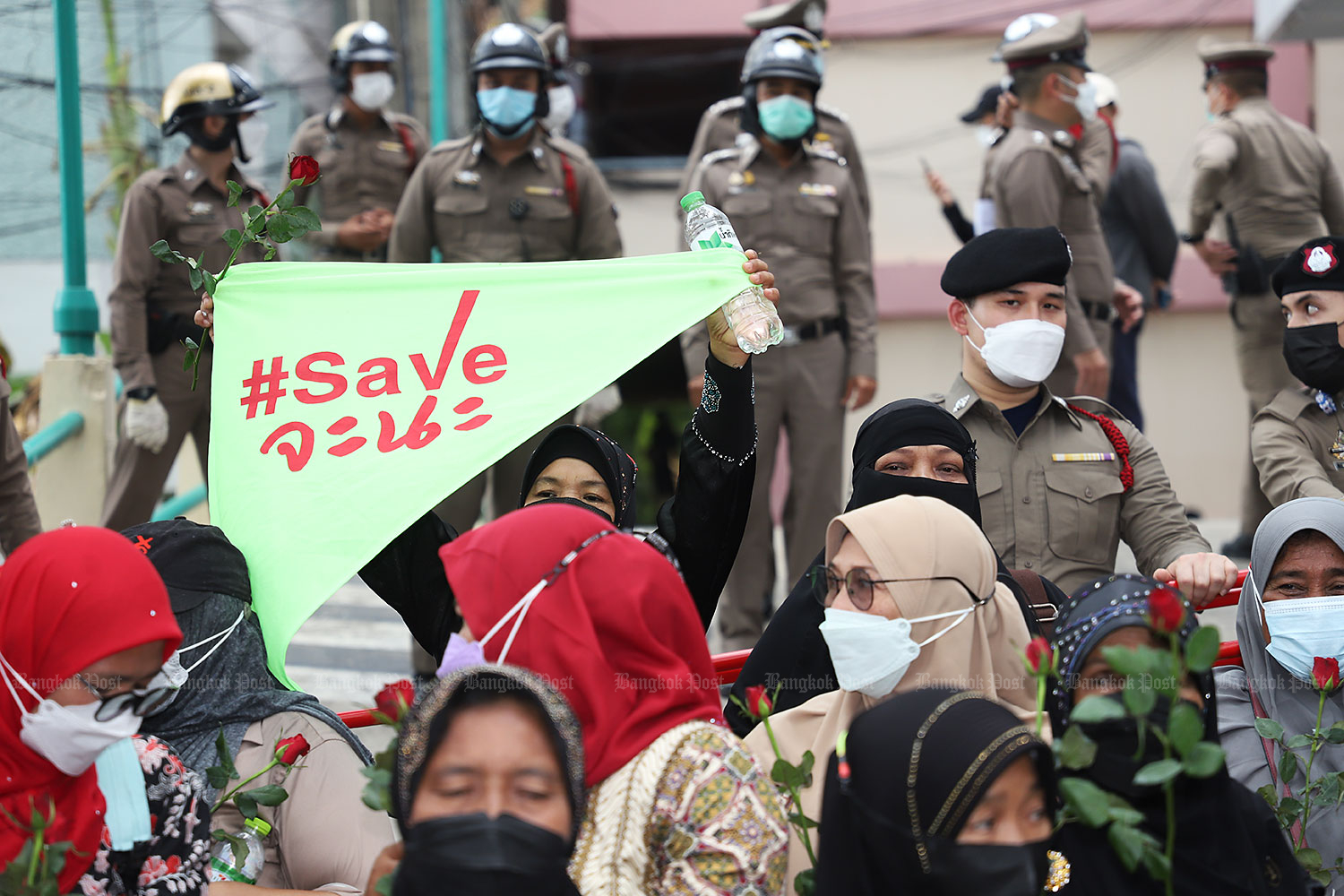
In January the Chana Rakthin Group, a grassroots movement from Chana district in Songkhla province, returned to the capital to protest against the Chana Industrial Complex Project, a few weeks after about 30 of its members -- mostly women and the elderly -- were arrested during protests last December.
The demands of the villagers were loud and clear: "Stop the top-down policies that threaten locals' sources of livelihood. Respect our voices."
They called for authorities to reconsider plans to develop Chana Industrial Estate -- a petrochemical complex and heavy industrial factories, with a deep-sea port yet to be built on 16,000 rai of land spanning three tambons in Chana district.
Although some believe the estate could stimulate the local economy, many residents have concerns over the potential environmental effects of the project, which may impact the community's main source of income from farming and fishery. This is because the project covers areas that have been classified as green zones designated for agricultural use.
Despite these serious concerns, the voices of Chana locals were not properly taken into account, as was apparent by the government's initiative to convert the protected green zones into industrial purple zones despite protests and complaints lodged with administrative courts.
Moreover, the government did not keep its promise to the Chana people to conduct a Strategic Environmental Assessment (SEA) before continuing with the project.
These facts are indicative of a recurring pattern in Thailand, where voices of affected locals are not fully heard or are even deliberately suppressed, which forces them to resort to informal and sometimes dangerous means to ensure they are listened to.
Conflicts like this can be largely prevented through effective public participation mechanisms that allow affected groups to have a say in decisions concerning their livelihoods and income.
Public participation is a fundamental aspect of policymaking that allows stakeholders of a new project or policy to learn more about the coming changes and provides a channel for them to express their views on the decision.
Unfortunately in Thailand, public participation mechanisms are often regarded as formalities required by law or merely tools to legitimise decisions that have already been made by the state.
If properly conducted, however, these tools can enable affected groups and relevant state agencies to work together to make the best policy decisions possible.
In the case of the Chana Industrial Complex, the underlying issue is not the fact that such development is undesirable, but that it is being implemented in a manner not suitable to the local context.
Those who oppose it are not necessarily against the project itself, but rather the potential environmental effects it may have, as shown by their demand for the state to conduct an SEA prior to the project being approved.
These concerns, along with other social and economic queries, were not fully accounted for due to these ineffective public participation mechanisms. To win the trust of stakeholders and ensure that megaprojects like this get the support of locals, public participation must be taken seriously.
Although there is no universal standard for formulating the perfect public participation process, at least two goals can be aimed for when they are conducted.
First, public participation processes must be applied consistently and transparently. State authorities must understand the purpose behind this and consistently adhere to good practices. Public consultation mechanisms must be applied objectively, and state or private agendas must not alter the integrity of these processes.
Second, such processes must be designed to maximise the ability of stakeholders to express their viewpoints. These processes need to be accessible to all groups, particularly remote communities.
Stakeholders also need to have access to the information needed to make informed opinions. Most importantly, the voices of both supporters and those who oppose these projects need to be equally respected and their safety must be protected so they can freely air their stances without fear.
Although efforts have been made to satisfy these tests, the public participation process for the Chana Industrial Complex project was lacking in many aspects.
Since the project was approved before a public hearing was properly conducted, this indicates that people's participation was an afterthought rather than a genuine tool to improve the project.
Even when a hearing was conducted later on, known opponents of the project were tracked and apprehended by officers, which deterred many from taking part in the public hearing to avoid getting in trouble and delegitimising a process they viewed to be unjust from the start.
Following successive rallies and societal pressure, the government and Chana local communities are back at the negotiating table. But one thing is clear -- another empty promise will spark new street protests.
These conflicts are actually entirely preventable.
The state must realise that procedural fairness benefits all stakeholders, particularly the government. Through proper people's participation measures and procedural fairness, locals will appreciate being heard, which fosters respect and trust.
Consequently, the project will become more acceptable to local communities as their concerns are being effectively addressed.
Public participation mechanisms must be used properly to ensure future development can reach remote areas in a way that achieves the goals of the state and private groups while accommodating the concerns and needs of local communities.
If the state authorities want to win the hearts and minds of local communities, respecting people's participation is the answer.
Dollada Kasarn is a researcher at Thailand Development Research Institute (TDRI). Policy analyses from the TDRI appear in the Bangkok Post on alternate Wednesdays.







